The climate crisis is severely impacting our world, but instead of protecting nature and people, our governments are not acting. Meanwhile, destructive companies, and the financial system that are enabling them pursue massive profits while Brazil’s precious natural areas turn to ashes.
Smoke for breakfast, smoke for dinner. There might be a shortage of food, but smoke is an unpleasant certainty in the daily lives of anyone living in northern Brazil. Year after year, usually in the second half of the year, the Amazon region is deforested and burned to make way for livestock grazing. However, in 2024, smoke and illegal fires reached an unprecedented scale, affecting different regions and bringing death and destruction across the country.
From January 1 to August 31 of this year, 63,189 fire hotspots were recorded in the Amazon, a 100.67% increase compared to the same period in 2023. In the Cerrado, the Brazilian savanna, this number exceeded by 63.3% the number of fire hotspots in the same period of 2023, according to data from the National Institute for Space Research’s (Inpe) Burn Program.
In the Pantanal, the largest inland wetland on the planet, the number of fire hotspots from January to August reached 9,167, a shocking 2,174% increase compared to the same eight months of last year, according to Inpe. When considering the burned area, the total has already surpassed the data from 2020, when there was a record level of destruction in the biome, which has now reached 2.5 million hectares devastated by fires. This figure is 62.1% higher than the area affected by fires during the same period in 2020, according to data from the ALARMES System, developed by LASA/UFRJ.
The reasons for this catastrophe are varied, but two factors connect all these tragedies: a persistent and abnormal drought, which is the result of the climate crisis and destructive agribusinesses enabled by local and international banks and investors. Illegal fires are often part of the production model, to renew pastures or to push the deforestation frontier further into forests, savannas, and other natural environments.
Climate change, agricultural giants, and reckless finance: a deadly combination for nature
In the Amazon, fires don’t occur naturally, it is used as a tool in the industrial agribusiness production process, to renew pasturelands or to clear forests. According to MapBiomas, livestock farming is the sector that is most closely associated with deforestation, occupying about 88% of the deforested areas in the Amazon up to 2023. The Amazon is going through another serious drought which also makes the forest more vulnerable to the fires.
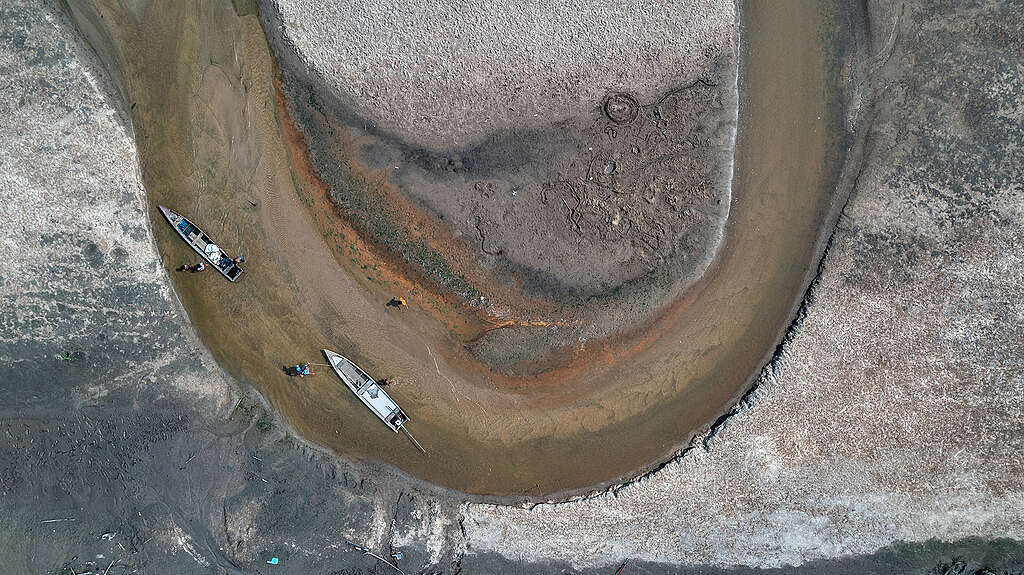 October 2023: The river that supplies water in the Porto Praia community of the Kokama Indigenous People is almost dry, and the population is almost isolated. In October, Greenpeace Brazil organised a field trip as part of the Wings of Emergency 2023 project to take humanitarian aid to the people most impacted by the historic drought in the Amazon Rainforest and offering logistic support to organisations researching the impacts on local fauna. © Marizilda Cruppe / Greenpeace
October 2023: The river that supplies water in the Porto Praia community of the Kokama Indigenous People is almost dry, and the population is almost isolated. In October, Greenpeace Brazil organised a field trip as part of the Wings of Emergency 2023 project to take humanitarian aid to the people most impacted by the historic drought in the Amazon Rainforest and offering logistic support to organisations researching the impacts on local fauna. © Marizilda Cruppe / GreenpeaceOn the other hand, in Pantanal and Cerrado, which occupy the entire central region of the country, fire can occur naturally, but in most cases, ignition is caused by humans, either accidentally or deliberately, often related to agriculture. The difference is that the spread of fire in these biomes has been intensifying in recent years due to the effects of extreme climate events like drought.
According to a survey published by MapBiomas Águas, the Pantanal was the biome that dried up the most over the historical series, from 1985 to 2023. In 2023, this floodplain had an annual water surface 61% below the historical norms. The study also pointed to a reduction in the flooded area and water permanence. The Cerrado faces its worst drought in the last 700 years, according to a study by USP researchers published in Nature Communications.
Deforestation and fires are the main sources of greenhouse gas (GHG) emissions in Brazil. According to data from the Greenhouse Gas Emissions and Removals Estimation System (SEEG) for 2022, the “land-use change” category was responsible for 48% of the country’s emissions, and agriculture for 27%.
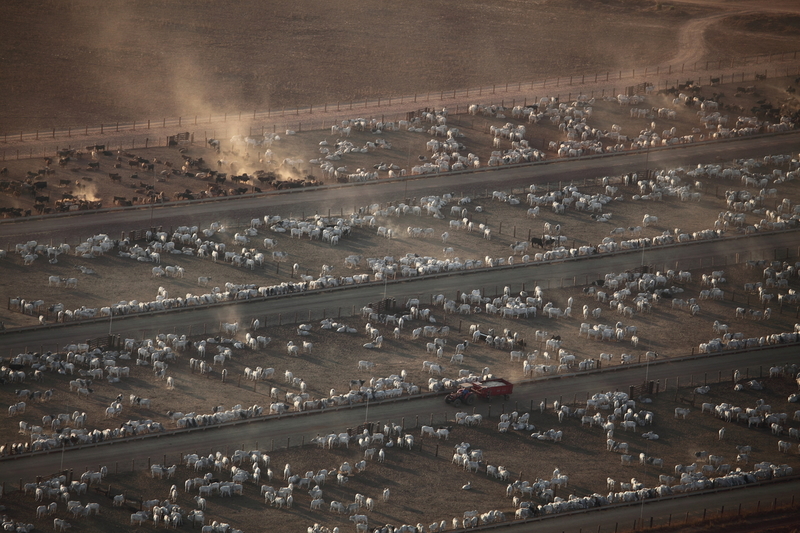 Cattle ranching in a deforested area in Querência, Mato Grosso State. Cattle ranching is the primary driver of forest destruction in the Brazilian Amazon. Close to 80% of the total deforested areas in the Amazon are occupied by pastures. © Rodrigo Baléia
Cattle ranching in a deforested area in Querência, Mato Grosso State. Cattle ranching is the primary driver of forest destruction in the Brazilian Amazon. Close to 80% of the total deforested areas in the Amazon are occupied by pastures. © Rodrigo BaléiaHere lies the rub: the agricultural sector is not being held accountable for this destruction, despite the enormous environmental and social impact. Nor are the banks and investors who inject hundreds of millions of dollars through loans and investments to fund the devastation of nature.
Where there is smoke in Brazil, there is fire. Where there is fire, there is someone profiting. Society and biodiversity pay the price.
The climate is changing, but business as usual continues
Every day, extreme weather events are showing humanity what awaits if nothing is done to stop global heating. The climate is unstable, and biodiversity is declining, but what hasn’t changed is the way large companies and banks do business. Fires are still not seen as a problem for financial institutions investing in agribusiness and its ways of operating.
A Greenpeace Brazil investigation/study identified 133 properties embargoed for illegal fire use in the Amazon and Cerrado between July 22, 2008, and June 30, 2024, which had access to “rural credit”, a financing device funded by -national budget resources at government-subsidised rates. According to the study, in the Amazon, 116 of the 122 rural properties financed and embargoed for illegal fire burned at least once in six years. Together, they account for a burned area equivalent to 1.8 times the size of Paris. Greenpeace Brazil further found that only 0.1% of the R$58 million (USD 10.4 million) in fines imposed for these crimes have been paid.
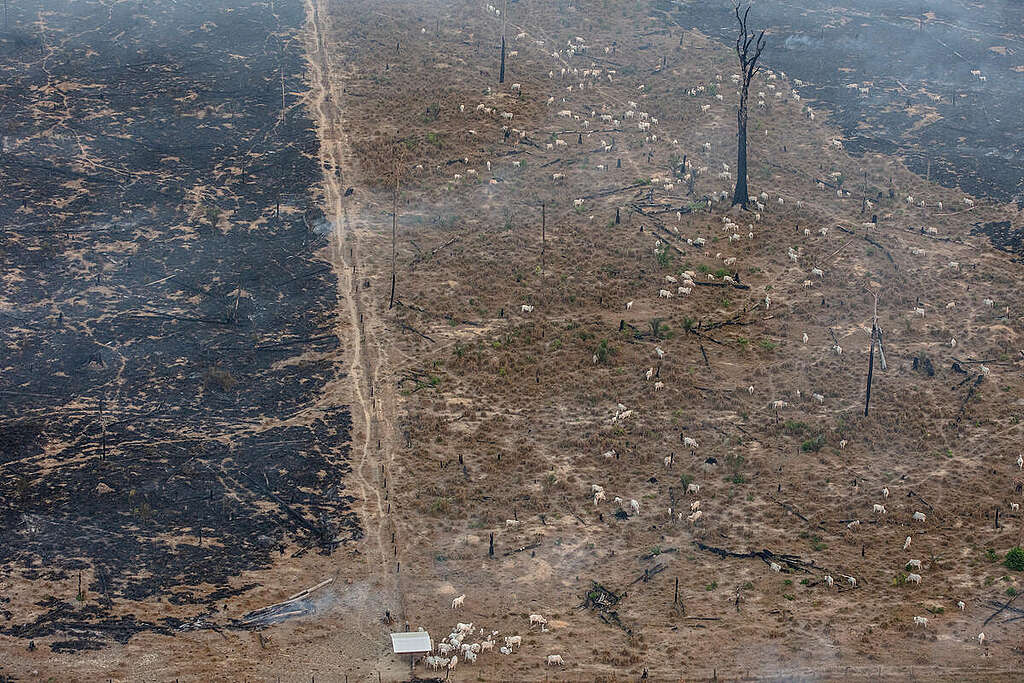 Greenpeace Brazil conducted an aerial survey in southern Amazonas and northern Rondônia to monitor deforestation and fires in July 2024. With over 10,000 hotspots just this month, the country has set a record for fire activity in nearly twenty years in the Amazon. Forest fires and burns were also reported in Conservation Units and properties financed with rural credit. © Marizilda Cruppe / Greenpeace
Greenpeace Brazil conducted an aerial survey in southern Amazonas and northern Rondônia to monitor deforestation and fires in July 2024. With over 10,000 hotspots just this month, the country has set a record for fire activity in nearly twenty years in the Amazon. Forest fires and burns were also reported in Conservation Units and properties financed with rural credit. © Marizilda Cruppe / GreenpeaceIn April this year, Greenpeace Brazil published another report showing how the criteria and analyses for granting credit remain lenient in the face of social and environmental issues. Greenpeace Brazil analysed rural credit operations for properties in the Amazon and identified 10,074 properties overlapping with Conservation Units that had access to rural credit. Additionally, 798 embargoed properties were financed for environmental crimes, as well as 24 located on Indigenous Lands, all in complete disregard for the rules and common sense.
But the global financial market also invests in companies turning the Amazon, and other ecosystems, into ashes. JBS, a leader in greenwashing and a giant in animal protein production, received USD 35 billion in loans and bond placements in capital markets between 2015 and the first quarter of 2023, according to research commissioned by Greenpeace International from the research organisation Profundo. The leading banks operating these flows were Barclays (based in the UK), followed by the Royal Bank of Canada, and in third place, the BMO Financial Group (Canada and the US). JBS is notorious for breaking zero-deforestation agreements and for its recurring involvement in socio-environmental crimes.
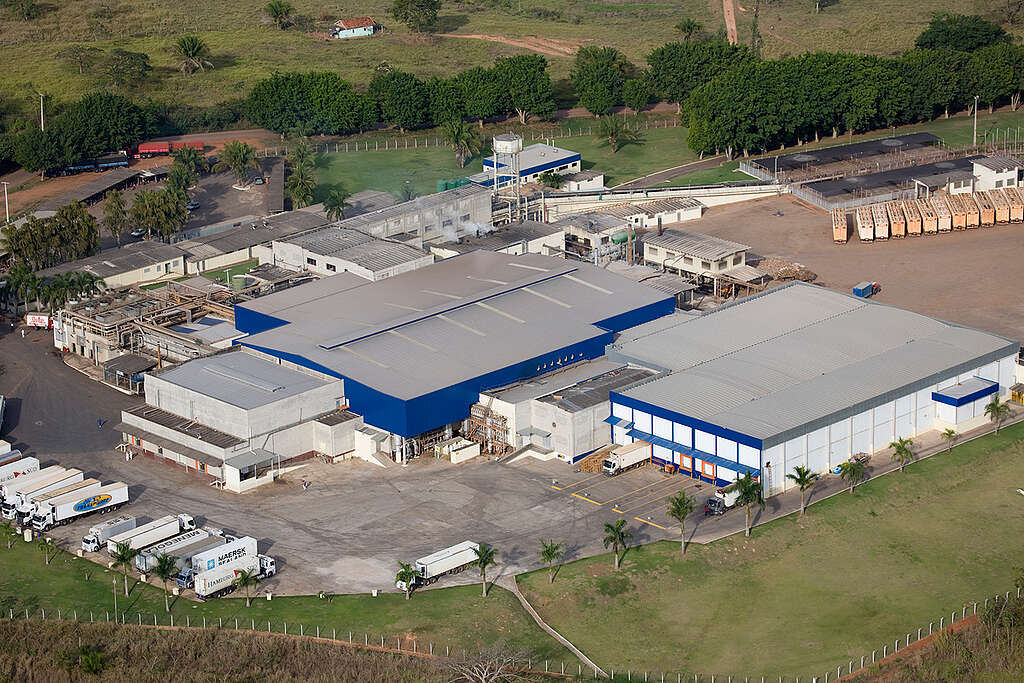 Aerial view of JBS slaughterhouse facilities. Large areas of the deforested Amazon rain forest used for cattle ranching are concentrated around cattle slaughterhouses. Cattle ranching is the primary driver of forest destruction in the Brazilian Amazon, with 79.5 per cent of deforested land used for cattle pastures. © Greenpeace / Daniel Beltrá
Aerial view of JBS slaughterhouse facilities. Large areas of the deforested Amazon rain forest used for cattle ranching are concentrated around cattle slaughterhouses. Cattle ranching is the primary driver of forest destruction in the Brazilian Amazon, with 79.5 per cent of deforested land used for cattle pastures. © Greenpeace / Daniel BeltráIt is no longer acceptable for humanity to invest in an economic model that perpetuates inequality and promotes the destruction of forests and biodiversity which are key tools in stabilising our climate. Change must come from all corners: governments and financial regulators must reign in those profiting from this destruction.
To meet the goals of the Kunming-Montreal Global Biodiversity Framework (KMGBF) agreement, adopted by 196 nations after the last United Nations Biodiversity Conference (CBD/COP15) in 2022, nations must take steps to align financial flows (both public and private) with biodiversity conservation, protection and restoration, withdrawing harmful subsidies and incentives, and prioritising activities that promote conservation and the sustainable use of biodiversity.
The nations have already agreed to this; it’s time for governments to act and show leadership at the CBD COP16 follow up conference in Colombia in October. We the people must confront the weak choices made by governments and the national and global financial systems. Next year, the 30th UN Climate Change Conference (COP30) will be held in my country, Brazil, in the city of Belém (the capital of the Brazilian state of Pará), in our Amazon. I hope that by then, there will be no more smoke for our afternoon tea. I hope that the world will see the link between our biodiversity and climate crises. Therefore, my message of hope is this: why leave for tomorrow what we can change today?
Rosana Villar is the Greenpeace Brazil journalist in Manaus.
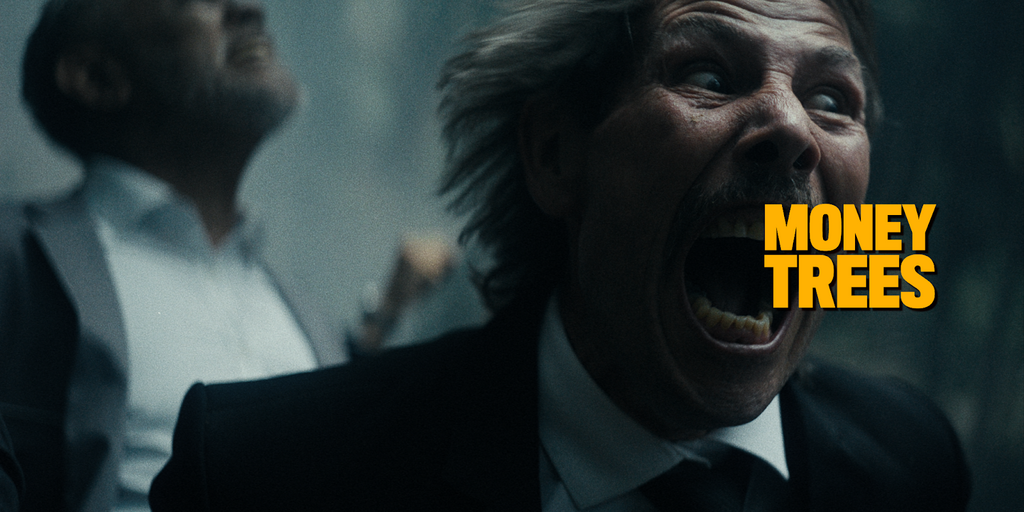
As long as money keeps flowing towards nature destruction, we can’t solve the climate crisis and reverse biodiversity collapse.
Add your name
 2 months ago
41
2 months ago
41


